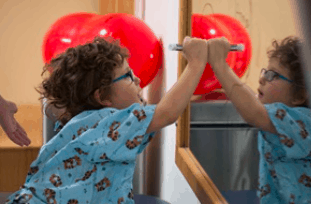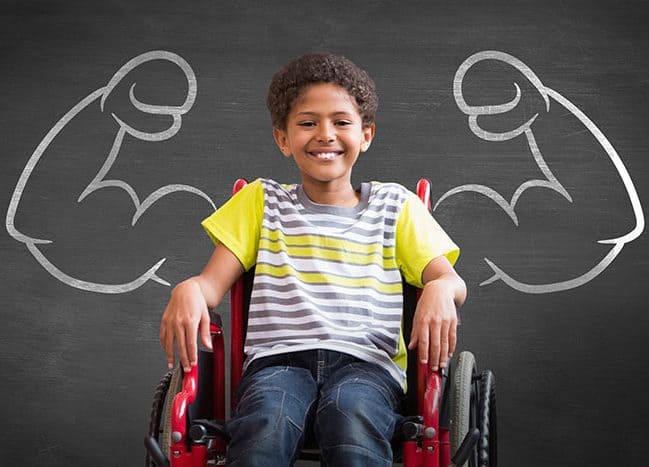I love learning new things. Not only does it help with my knowledge but it helps me better others knowledge because I can share what I learn with them. So after spending a few minutes googling and reading about different things I decided to write on Angelman Syndrome which is also known as AS. 
This rare neuro-genetic disorder becomes noticeable by the age of 6 to 12 months and occurs in one in 15,000 live births or 500,000 people worldwide. AS does share symptoms and characteristics with disorders such as autism, CP, and Prader-Willi syndrome which often causes a misdiagnosis. However, scientists know how AS is caused and have been able to reverse it in mice. This gives high belief that finding a cure for AS is possible.
How AS is caused
Angelman syndrome is caused by the UBE3A gene in the 15th chromosome loosing a loss of function which is obtained from the mother. While the fathers UBE3A gene is silent, the mothers helps with brain development. But because AS is caused by the gene from the mother, this affects the way the brain gets information needed for development, controlled speech, movement, and learning. And because all of the above goes on during fetal development it becomes part of the babies genetic makeup.
Signs and Symptoms
While symptoms can vary, most children who have AS have been diagnosed with the following:
- Developmental Delays. Though everything varies from person to person, common delays in infants include the inability to support one’s head, pull their self up to stand and delayed motor skills such as crawling. Other problems may include feeding issues due to problems such as sucking or swallowing. Common delays in young children include an inability to walk, an unstable gait, and balance issues.
- Seizures. These typically begin between 18 months to 3 years old.
- Sleep problems. Abnormal sleep-wake cycles and a diminished need for sleep.
- Lack of speech. Infants may display a lack of “talking” such as cooing or babbling. While young children usually use nonverbal methods of communication. This can be because conversational speech is either absent or very limited.
Diagnosing Angelman Syndrome
Next let’s talk about diagnosing someone with AS. Each one of the tests below will be done through blood testing with the final results taking a few weeks since it’s a result of genetic testing.
- Methylation Test. This test identifies if the UBE3A gene is functioning as it should. If this test comes back saying the UBE3A is abnormal then AS is present and the genetic type is determined next.
- If the methylation test comes back normal, DNA sequencing of the UBE3A gene will need to be done. This will tell if the gene is functional. In a scenario such as this one, the person more than likely has a condition similar to AS.
- Next is the Fish 15 test or comparative genomic hybridization test. 70% of people with AS have chromosome deletion which this test will help see. However, if the test results come back normal then the person is not deletion positive.
- Lastly, DNA Marker Analysis. This test determines if the AS is paternal uniparental disomy (UPD), meaning there was a problem with meiosis. If this test comes back negative then imprinting center defect will be assumed. However, a molecular study will need to be done to confirm.
Treatment
While there is no cure yet, there are ways to focus on managing the child’s medical problems and developmental delays. Treatment may include medication for seizures, speech therapy, behavior therapy, occupational therapy, and physical therapy.
Physical therapy will help with the child’s joint mobility and their movement. Also, physical therapy can help with balance and coordination issues along with strength. Typically when participating in physical therapy the therapist will make a game out of it for the child feels as normal as ever and has a fun time. If a child is into sports, rocket ships, racing, there is a way to bring that into their therapy session to help keep them engaged and on the right track to getting better.
If you’re located in the Central Florida area, give us a call at Hohman Rehab and Sports Therapy. Our physical therapists are specialized in a numerous amount of things and love to help others get back on track.


